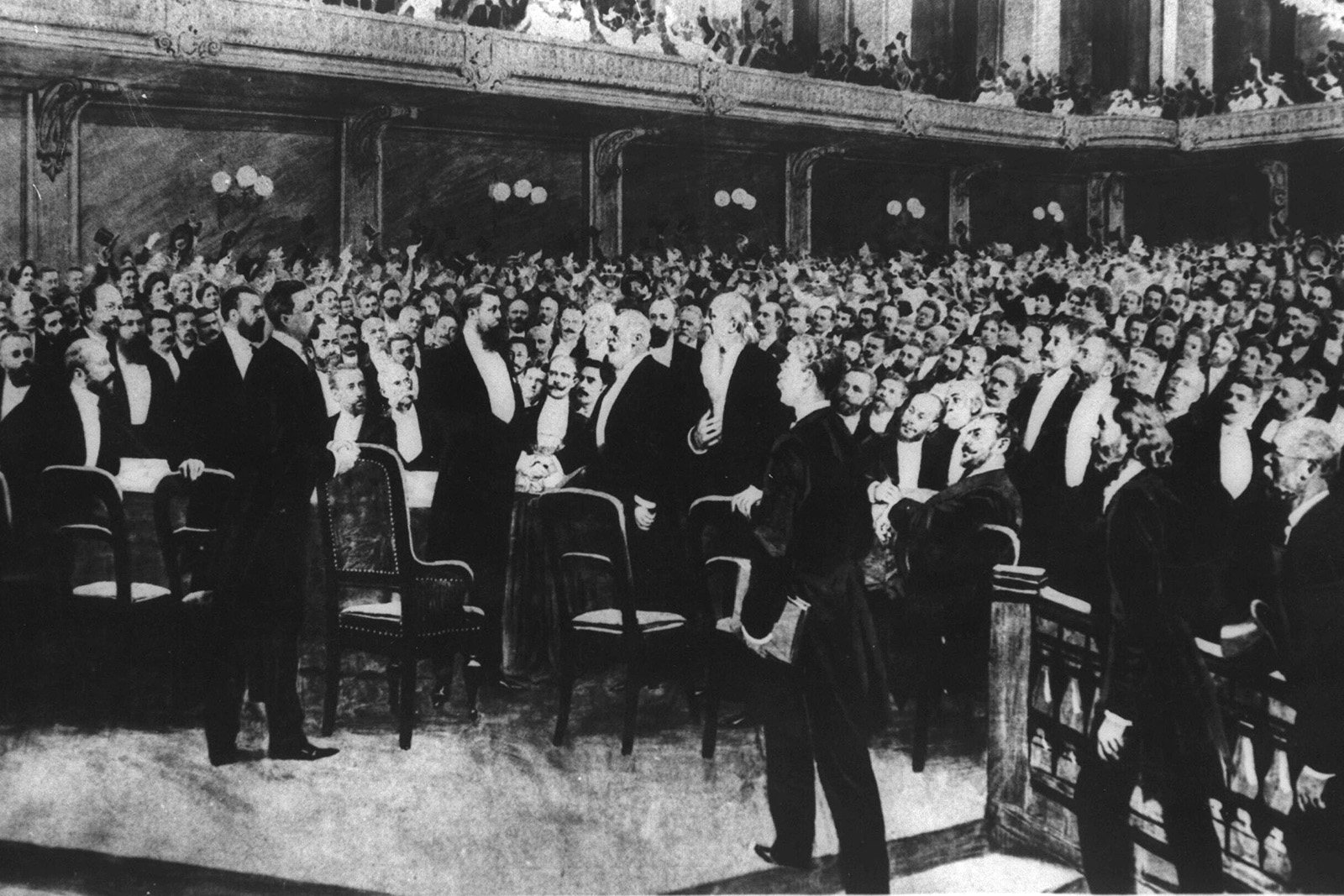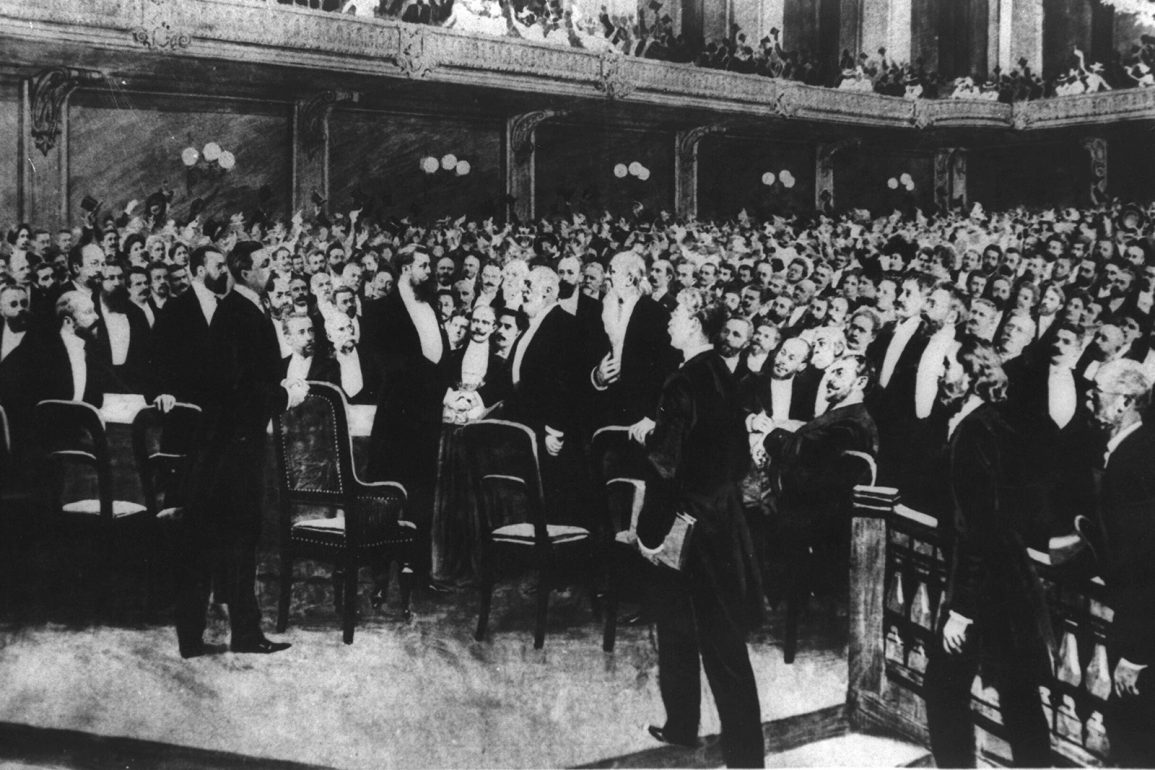
(RNS) — What does a Jewish text message usually say? “Start worrying … details to follow.”
That is the way it has been lately. So, Jews — and in this particular case, Reform Jews — are overdue for some good news, which recently came out of the World Zionist Congress.
The WZC is the supreme legislative body of the World Zionist Organization, a nongovernmental group that promotes Zionism worldwide. The first congress was formed in 1897 and was convened by Theodor Herzl, the founder of modern Zionism.
The WZC sets the direction and priorities for Zionism. It has delegates from Zionist organizations and parties around the world, reflecting a broad spectrum of political, religious and ideological views. It influences how hundreds of millions of dollars are used for Zionist and Jewish educational programs.
The big news is that the 2025 WZC election shows that, while some early results are still being challenged, the Reform movement received the largest number of votes — 47,887 out of the 230,257 ballots cast, or roughly 20% of the vote.
According to Reform movement leaders, this represents not only the largest bloc of votes in this election, but the largest bloc of votes for any group in the history of the WZC. Twenty-two slates competed, and elections are held every five years. This election also set a turnout record.
Mercaz USA, which represents Conservative/Masorti Judaism, came in fourth with 27,893 votes, or about 12%. Am Yisrael Chai and Eretz HaKodesh came in first and second, respectively (more on them below).
While it is hard to discern what the impact of the Reform movement’s success will be, ideally it would mean increased funding for Reform programs and education. But at the very least, it sends a message that Reform Judaism is part of the Zionist conversation, and it cannot be ignored. It is also an act of resistance in the face of the xenophobic, violent Zionism of Israeli National Security Minister Itamar Ben-Gvir and Finance Minister Bezalel Smotrich. It is a also victory for the pulpit.
“This is more than just a win for our slate — it is a resounding mandate for the values we champion,” said Rabbi Rick Jacobs, president of the Union for Reform Judaism, in a news release. “Our community stepped forward with clarity and courage to say we will lead, we will protect democracy, and we will build a more just and inclusive future for Jews everywhere.”
The overwhelming majorly of Reform rabbis support Israel, and the support for the state shows up in their sermons.
But, that support often contains a “but.” It’s something like, “I love Israel, and I am a Zionist, but what I see now is neither the Israel I love nor the Zionism that I embrace.”
That’s well and good, but what do you want your people to do? Now through the WZC, these rabbis have hit the homiletical jackpot. They have named the problem, and they have empowered their people, through their votes, to become change agents.
This is necessary, especially for so many young Jews who are frustrated and alienated by what they see contemporary Zionism being and what they see Israel becoming.
But there’s another piece of the puzzle.
As well as Reform Judaism did in the election, Orthodox Judaism did even better.
According to eJewishPhilanthropy: “Overall, Orthodox Jewry is the biggest winner of this election, with slates affiliated with the denomination garnering more than 40% of the vote — roughly four times higher than Orthodox Jews’ share of the American Jewish population.”
And according to The Times of Israel:
“While the Reform movement’s slate garnered the most votes, the most surprising showing was by Am Yisrael Chai, a new group of Jewish college students and young professionals focused on pro-Israel advocacy and promoting the ‘love of Torah and Judaism,’ that came in second place with 31,765 votes, or 13.8% of total votes cast.
Eretz HaKodesh, associated with Israel’s Haredi United Torah Judaism party, placed third with 29,159 votes, or 12.7% of the total. The Orthodox Israel Coalition, representing mainstream Orthodox institutions, placed fifth with 26,975 votes, or 11.7% of the total.”
Why might this be? As the Pew Research Center has shown, Orthodox Jews feel more connected to the Jewish people and to Israel than other Jews.
- 95% of Orthodox Jews feel a strong sense of belonging to the Jewish people. Compare that to 72% of Conservative Jews and 49% of Reform Jews.
- 80% of Orthodox Jews feel responsibility for helping Jews around the world. Compare that to 42% of Conservative Jews and 23% of Reform Jews.
- 67% of Orthodox Jews feel connected to Israel; only 12% of Reform Jews feel similarly.
I note those discrepancies with sadness. I understand the differences between Orthodox Jewish identity and non-Orthodox Jewish identity. I understand why Orthodox Jews are more likely to fully observe Shabbat and other holidays, keep kosher and observe other rituals. But that’s Judaism as a religious expression. What about Jewish peoplehood?
Liberal Jews have excelled in tikkun olam, or repairing the world.
We now need to excel in tikkun ha-am, repairing our people and our ties to that people.
Judaism is not “just” a religion. It is a religion, culture, ethnicity and nation. All those elements freely intermingle with each other. They are all threads in a huge tallit and tightly woven together — so much so that if you start pulling on one thread, the entire garment might unravel in your hand.
With this vote, Reform Jews have said right-wing, hateful Zionism — what I call bizarro Zionism — is not Zionism. It is a malignancy. Right wingers do not own Judaism or Jewish values. That connection to faith, land, people and culture belongs to all Jews.
With this vote, Reform Jews have re-affirmed their connection to the larger story of the Jewish people. And there is still much work for us to do.








